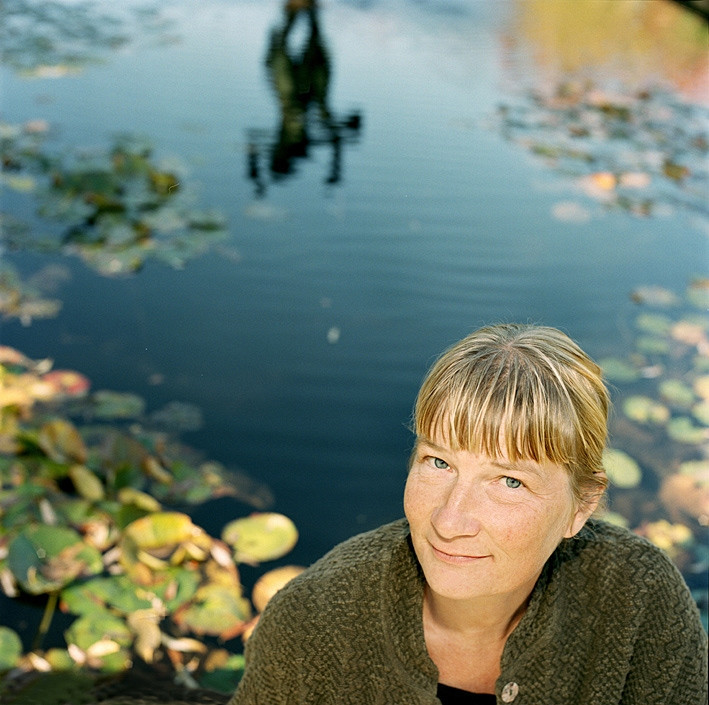Human composting: Recycling corpses proving to be a tricky proposition

Death is a messy business. Shock and grief make for a heady mix of emotional turmoil that leaves many reeling. Then there's the funeral and, unless specified by the deceased, the big choice: cremation or burial?
Much of the detail of either option is taken care of by funeral directors who shield us from the potentially gory ins and outs.
However, neither option is what might be called sustainable as cemeteries around the world fill up and space increasingly becomes an issue.
Never mind that modern burial practices often involve embalming bodies, creating potentially toxic remains, while cremation releases greenhouse gasses and risks releasing impurities into the air. So what can be done to solve this conundrum?
All these things produce something beautiful. But my own body and my family members' bodies aren't used to produce something beautiful
Step up a green approach with a twist courtesy of the Promessa Organic Company, which hopes to take composting to another level.
The Promessa approach claims its unique process is environmentally friendly without appearing offensive to grieving relatives.
It involves freeze-drying the body with liquid nitrogen before subjecting the now-brittle remains to a short burst of vibration that reduces them to a powder. After freeze-drying, the remains are placed in a biodegradable coffin, which is then buried in a shallow grave and turns into soil in less than a year.
After bumping up against legal roadblocks in Sweden, Promessa is hoping to make the process available to the public in the coming months, with Germany the likeliest first market. The UK is also high on the list.
Susanne Wiigh-Masak developed 'respectful' processes
The brainchild of Susanne Wiigh-Masak, a biologist from Gothenburg, Sweden, who moved to a remote island 80km north of the city after leaving university in 1979, the company sets out to mirror nature's approach to recycling.
Shortly after embracing rural life, she began her love affair with composting, developing and perfecting her methods to the point of building a reputation as a local expert. The experience got her to thinking about taking her learnings a step further.
"All these things produce something beautiful," Wiigh-Masak said of the organic waste that she turns into compost. "But my own body and my family members' bodies aren't used to produce something beautiful."
And so an idea was born. "I have been working on this all my adult life," she added.
However, the process stops short of using corpses to make compost, something that provides its own challenges - both ethical and practical. "Our compost wouldn't refuse human remains but we need to regulate this to guarantee ... to keep the feeling of respect," Wiigh-Masak said.
Urban Death Project leads the way in the US
No such qualms exist in the US, though, where a natural burial movement is starting to take shape. At the forefront is Seattle-based Katrina Spade, who is advocating the construction of a facility for human composting.
"Composting makes people think of banana peels and coffee grounds," Spade told The New York Times. "[But] our bodies have nutrients. What if we could grow new life after we've died?"
Spade's approach follows well-established composting methods that mix materials rich in nitrogen such as corpses with materials containing carbon such as woodchips. Adding appropriate amounts of water and air raises the temperature and gets the process going.
Composting makes people think of banana peels and coffee grounds. But our bodies have nutrients. What if we could grow new life after we've died?
Spade founded the Urban Death Project, which aims to crowdsource $75,000 (£51,000) to build a "compost-based renewal system" for human bodies. In reality, this would take the shape of a three-story structure that would encourage the natural decomposition of corpses with the help of added high-carbon materials.
Each structure would hold about 30 bodies, with new ones added on top and a rich compost left at the bottom, replicating on a much larger scale the process of a standard compost bin.
As of 15 April, Spade was well on her way toward reaching that target with $51,248 raised.
Back in Sweden, Wiigh-Masak is unlikely to chip in. She is sceptical about the chances Spade will succeed without breaking the body up, though she is careful to avoid discouraging her fellow compost enthusiast.
"You can never get any soil production from a whole body," Wiigh-Masak said, stressing the process needs air to work. "If you don't do your homework, you will end up with a mess."
© Copyright IBTimes 2025. All rights reserved.






















